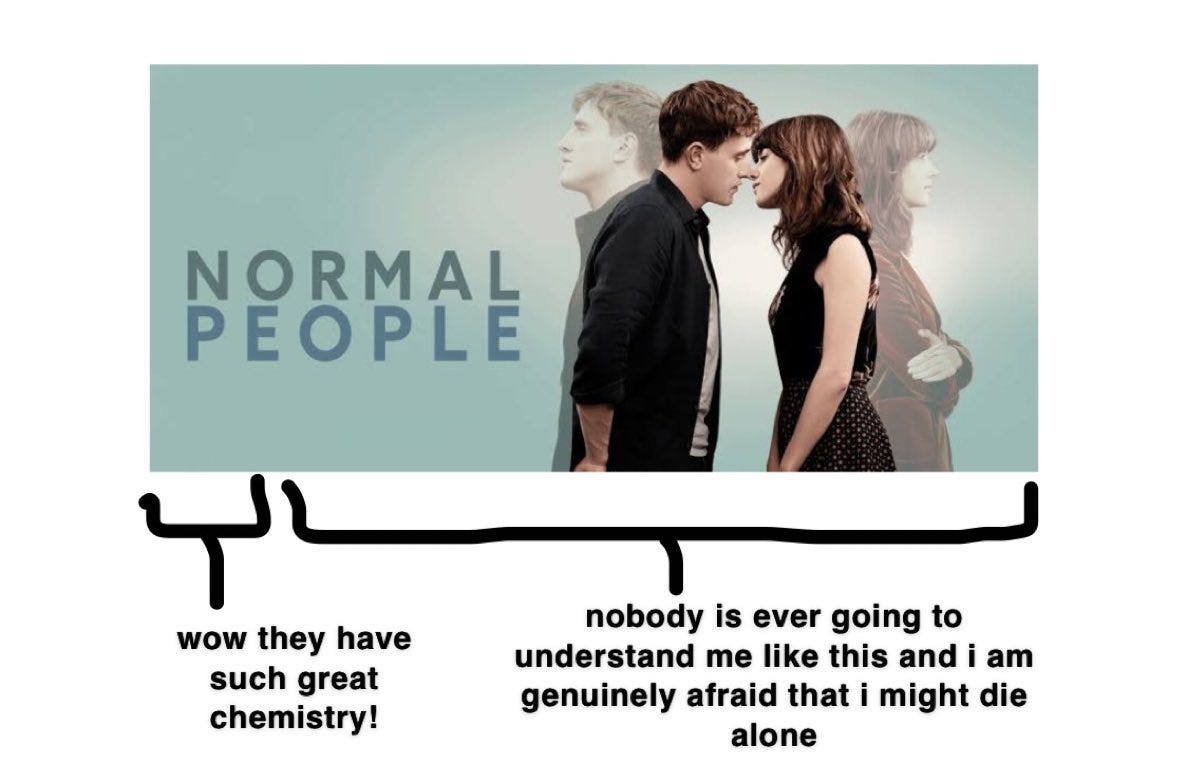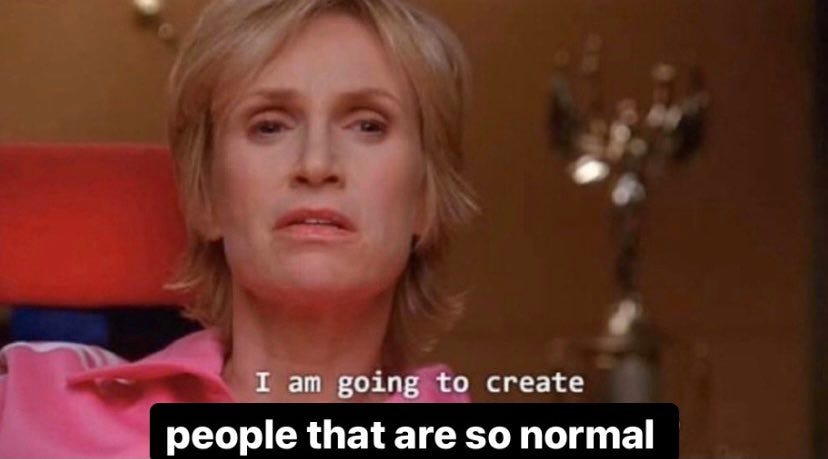normal people learn what marxism is: sally rooney as a modern marxist thinker
sally rooney is a marxist legendress aka an essay i wrote for class that i like.
“People think that socialism is sustained by force—the forcible expropriation of property—but I wish they would just admit that capitalism is also sustained by exactly the same force in the opposite direction, the forcible protection of existing property arrangements,” (Beautiful World, Where Are You 41).
Before publishing her 2021 novel, Beautiful World, Where Are You, Irish author, Sally Rooney, was questioned. Critics, readers, and Marxists alike wondered if the author, noted for her deep-rooted Marxist beliefs and the sprinklings of socialist and Marxist commentary she incorporated into her previous novels, Normal People and Conversations with Friends, would make the step and publish “this generation’s Marxist novel,” (Clark). Rooney responded with the release of her third novel, Beautiful World, Where Are You, arguably more Marxist in nature than its predecessors. Beautiful World, Where Are You makes blatant the concept that under global capitalism, the angst and existentialism depicted in her protagonists, Alice and Eileen, is no longer anxiety synonymous with being a young adult, but rather discontent with the fundamental– and seemingly inescapable aspects of society. This novel takes the ideas she consistently wrote about and amplifies them, giving the readers no choice but to understand that the struggles plaguing Rooney’s characters come from their existence in a capitalist society. Beautiful World, Where Are You makes it abundantly clear that all of Rooney’s novels are not just about average, relatable individuals having sex and dealing with their relationships– they are doing all of this while struggling under capitalism and attempting to understand the repercussions of participating in this society. Rooney’s understanding and presentation of Marxist ideals within her literature derive from the concept of an ideological state apparatus and the bourgeois perspective of living within, wherein she modernizes concepts originally presented by noted Marxist scholars and makes them more palatable for the progressive reader.
The idea of an ideological state apparatus was first presented by Louis Althusser, a French Marxist philosopher, in his 1970 essay, “Ideology and Ideological State Apparatuses.” Althusser presents his modernized take on the theory of ideology defined by Karl Marx as reproductions of the conditions of production and the reproduction of the relations of production occurring through the state apparatuses, which essentially are machinations controlled by the capitalist ruling class to perpetuate and create a class struggle that represses, exploits, and extorts the working, or ruled class (Althusser). Althusser first discusses the concept of repressive state apparatuses (RSA), used by the ruling class to dominate the working class, before presenting his concepts for ideological state apparatuses (ISA), which are similar to RSA but rely on methods other than violence to achieve the same objectives. In ISA, institutions, including education, the church, family, media, trade unions, etc, serve to transmit the values of the state, interpellate individuals affected by them, and maintain order in society. Most importantly, the ISA is used to reproduce capitalist relations of production (Althusser).
Class Consciousness As Pillowtalk
Rooney, clearly familiar with the writings of the Marxist greats, takes these ideals and contextualizes them throughout her different novels. All of Rooney’s novels feature characters that at some point in the novel, comment on their place within society, noting different elements of the ruling class and ideological state apparatus contributing to the struggle that they experience. In Conversations with Friends, Rooney’s first published novel, class conflict between her protagonists becomes apparent, and it is a concept seen again and again throughout all of her literature. Nick and Frances, the main lovers in Conversations with Friends, embody their class differences, with Nick offering to pay Frances’ grocery bill while in her bed. It could even be said that a fundamental piece of Rooney’s writing is the underlying class conflict that inevitably stems from the ISA and trickles down into the ordinary lives of Rooney’s protagonists. When Rooney’s characters speak to each other, spend time together, and more often than not, find themselves engaging in sexual relations with one another, conversations surrounding their economic views come into play.
Normal People, Rooney’s second novel, introduces readers to Connell and Marianne, two students finding their place in the world, but mostly realizing the importance they play in each others’ lives. At the beginning of the novel, Connell’s mother works as a cleaner for Marianne’s family, immediately highlighting the economic differences between the two. Rooney emphasizes how “Marianne lives in the white mansion with the driveway and that Connell’s mother is a cleaner, but no one knows of the special relationship between these facts,” (Normal People 2). Marianne and Connell begin a highly tumultuous sexual relationship, and readers follow the two throughout the years of their lives. As the two mature and understand each other more deeply, it is still evident that their relationship began in a capitalist environment, as they only begin to get to know each other while Connell’s mother is cleaning Marianne’s house. Interactions throughout the novel only continue to support this fact, including when the two attend college at Trinity in Dublin together and Marianne owns her flat, passed down from family members that previously attended the college, while Connell has to scrape together money to pay rent for his shared bedroom. Even though it is evident to both Connell and Marianne that they are in different economic positions, it is never discussed between them and ultimately leads to one of their breakups and miscommunications. In the novel, Connell, burdened by the ideological state apparatus that is rent and education, cannot afford to live in Dublin for the summer and must choose between asking Marianne if he can live in her paid-for flat, or return to their small town and stay with his mother and work a minimum wage job. Rooney masterfully circles this point back to the original economic struggle presented between the two characters:
“It just felt too much like asking her for money. He and Marianne never talked
about money. They had never talked, for example about the fact that her mother
paid his mother to scrub their floors and hang their laundry, or about the fact that
this money circulated indirectly to Connell, who spent it, as often as not, on
Marianne,” (Normal People 90).
It is evident throughout Normal People, that Marianne and Connell, while deeply loving each other, develop that love within the capitalist system that envelops their lives. For better or for worse, they are a result of their economic upbringings, and that contributes to the miscommunication and love between them.
In Beautiful World, Where Are You, Rooney doubles down on her incorporation of Marxist ideals. Class consciousness, especially between the two main characters, Alice, a millionaire author, and Eileen, her best friend who’s worked the same job since university, is still evident, but more obviously complex references strengthen the concept of the ISA, with the state itself serving as an overarching cause of conflicts. Alice and Eileen spend a large portion of the novel emailing back and forth to each other, describing the events going on in their lives and discussing their thoughts on the capitalist society that plagues their everyday lives –for Alice, it is the pressure and struggle she feels to perform as a writer, and for Eileen it is the financial struggles she finds herself in, paying rent and living off of a small salary– and how these institutions manifest themselves into their relationships. In these emails, Rooney is able to incorporate her own Marxist ideas, but disperses her theories through the personal perspectives of Alice and Eileen:
“I’ve been thinking a lot about right-wing politics (haven’t we all) and how it is that the conservationism (the social force) came to be associated with rapacious market capitalism. The connection is not obvious, at least to me since markets preserve nothing, but ingest all aspects of an existing social landscape and excrete them, shorn of meaning and memory, as transactions. What could be ‘conservative’ about such a process?” (Beautiful World, Where Are You 16-17)
The digressions made in the emails present Rooney’s complex thoughts and Marxist beliefs in a way that feels natural to the novel. Further, the inclusion of the more dense theory presented in email format draws a connection to Marxist theorist Walter Benjamin’s “The Work of Art in the Age of Mechanical Reproduction” where the content of the emails represent the art and the technology and methodology of putting this content in emails represents the concept of mechanical reproduction. Rooney’s struggles and her ideas become the characters’, and she integrates these concepts so they become the heart of this novel. The relationships themselves rely on this complex yet necessary discourse and like Connell and Marianne in Normal People and Frances and Nick in Conversations with Friends, stem from coming together as modern individuals living under ideological state apparatuses.
I’m Not a Religious Person But Sometimes I (And Other Young People) Think Sally Rooney Is God.
Rooney’s writing brings the often dense concepts presented by classic Marxist theorists like Althusser, Benjamin, and Theodor Adorno into a contextualized setting, a part of what makes her writing so intriguing to young people. As the internet and social media foster an environment for young people to connect and discuss their ideas, more people are being exposed to and engaging in more anti-capitalist discourse. Rooney solidified herself as a modern Marxist thinker, expanding on the ideas she presents in her novels when she speaks in interviews, book talks, and essays. In an interview with The Guardian, she spoke openly of the inclusion of anti-capitalist rhetoric in Normal People, “It would have been really difficult for me to write about young people leaving home in the west of Ireland, moving to college, and not confront the economic disparities that were emerging at the time, like the stripping back of protections from people from working-class backgrounds who were going to college,” (Wilson). In this case, Rooney referred to the economic crisis Ireland experienced in 2008 when the country experienced a recession.
Rooney’s writing draws heavy influence from Theodor Adorno and Max Horkheimer’s “The Culture Industry: Enlightenment as Mass Deception” which introduces the term “culture industry” to represent standardized goods manipulating mass society into subservience and passivity (Adorno and Horkheimer). Rooney, clearly familiar with the writings of Adorno and Horkheimer, subverts her writing from literature traditionally falling within the culture industry. Rather than follow the standard, capitalist model typically expected within modern, contemporary literature, the relationships Rooney writes about between her characters are intrinsically Marxist in nature. For many of her characters, the institution of marriage is seen as an extension of capitalism, represented by Simon and Eileen in Beautiful World, Where Are You, who don’t see the necessity of marriage, yet continue their relationship without existing under that label. Rooney’s works are often remarked on for the inclusion of detailed, frequent sex between her characters, but when exploring her books through a Marxist lens and as a critique on the culture industry, sex is often a taboo topic, and rather than overly romanticize it, weaponize it, commodify it, or outright cut it out, Rooney normalizes sex and writes it as it is — a completely regular and normal part of life. Conversations about life happen between the sheets, but at the same time, sex is explored in different forms, and topics like kink are discussed in Normal People, when mainstream, capitalist literature steers away from topics of the sort.
Rooney is a modern Marxist thinker, and she isn’t perfect by any means. Her books, presenting these ideas of anti-commodification, are commodified, and while she has no control over the public reaction to them — or TikTok teens self-describing themselves as “sally rooney core” the unfortunate reality is she produced this art and put it out into the world where people have to spend money to access it. This allows her literature to be turned into artifacts within the culture industry, where the mainstream media creates adaptations of them for television and removes the Marxist content, leaving only a trace of class commentary. Perhaps consider a free PDF on your website for your next book, Sally Rooney.
References
Adorno, Theodor W., and J. M. Bernstein. “The Culture Industry: Enlightenment as Mass
Deception.” The Culture Industry: Selected Essays on Mass Culture, Routledge,
London, 2001.
Althusser, Louis. “Ideology and Ideological State Apparatuses (Notes towards an
Investigation).” Lenin and Philosophy, Verso, London, 1971.
Benjamin, Walter. The Work of Art in the Age of Mechanical Reproduction. Translated
by J. A. Underwood, Penguin Books, 2008.
Clark, Alex. “Conversations with Sally Rooney: The 27-Year-Old Novelist Defining a
Generation.” The Guardian, Guardian News and Media, 25 Aug. 2018,
https://www.theguardian.com/books/2018/aug/25/sally-rooney-interview-normal-
people-conversations-with-friends.
Rooney, Sally. Beautiful World, Where Are You. Farrar, Straus and Giroux, 2021.
Rooney, Sally. Conversations with Friends. Faber and Faber, 2017.
Rooney, Sally. Normal People. Faber & Faber, 2019.
Wilson, Jennifer, et al. “How Should a Millennial Marxist Novel Be?” The New Republic,
6 May 2023,
https://newrepublic.com/article/163505/millennial-marxist-novel-be-sally-rooney-
beautiful-world-review.









wow – that's so interesting, have to read rooney's books now!! you've written about all this so beautifully; I can't not read her work